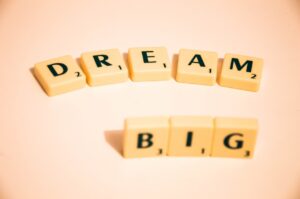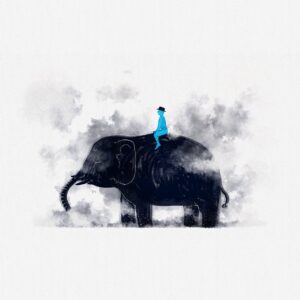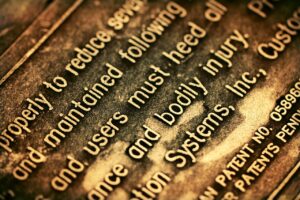La idea generalizada de que la gente no cambia, es una creencia comúnmente aceptada. Sin embargo, esta suposición puede resultar tan errónea como la creencia de que los planetas giran alrededor de la Tierra en lugar de suceder lo contrario. La personalidad humana no deja de ser la base de nuestro comportamiento, pero esto no implica un límite inflexible. Es flexible en respuesta a la influencia del medio social y el contexto individual.
La creencia de que la gente no cambia, como mencionada, puede llevar a adoptar una visión pasiva hacia la transformación personal, donde se asume que los individuos están condenados a ser lo que son siempre. Sin embargo, esta apatía puede deberse a la falta de comprensión sobre el proceso real de cambio. La realidad es que las personas pueden cambiar sus vidas y comportamientos a medida que crecen y desarrollan nuevos patrones de pensamiento.
La capacidad para cambia se basa en una interacción constante entre la persona y su entorno, incluyendo los factores sociales y culturales que rodean su vida. Esto nos lleva a considerar si el cambiar es más un proceso creativo que un resultado determinista. La respuesta es sí, podemos cambiar a alguien siempre y cuando seamos capaces de abordar las raíces del comportamiento con una comprensión profunda y un compromiso dedicado.
La verdad sobre la capacidad humana de cambio
La verdad sobre la capacidad humana de cambio es que no se trata de un proceso lineal ni determinista, sino más bien de un viaje complejo y fluctuante. Aunque las personas pueden presentar patrones de comportamiento establecidos durante largo tiempo, no hay una barrera infranqueable que impida el cambio.
En realidad, el cambio es un proceso natural que acompaña a la vida humana. Podemos reflexionar sobre nuestra propia experiencia y ver cómo hemos crecido, madurado y desarrollado nuevas habilidades y capacidades a lo largo del tiempo. Esto no significa que hayamos cambiado de la noche a la mañana, sino más bien que hemos ido evolucionando gradualmente hacia una versión más sabia, más segura y más capaz.
En este sentido, podemos considerar el cambio como un proceso creativo que requiere motivación, esfuerzo y compromiso. No se trata de esperar a que suceda algo milagroso o simplemente resignarse al statu quo, sino más bien de abordar los desafíos personales con una mente abierta y un corazón dispuesto al crecimiento.
Es aquí donde la motivación jugó un papel clave. Un cambio real requiere de una razón profunda que lo impulse en el interior de la persona. Esta motivación puede provenir de varias fuentes, como la búsqueda del AUTO-DESCUBRIMIENTO, el deseo de superarse a sí mismo o la necesidad de adaptarse a cambios circundantes.
En cualquier caso, es importante recordar que el cambio no se produce por mera intención, sino más bien a través de una dedicación decidida que impacte en el actuar y sentir para trascender el statu quo.
Las influencias que pueden cambiar el comportamiento humano
Las influencias que pueden cambiar el comportamiento humano son diversas y pueden venir de diversas fuentes. Aunque la mayoría de las veces se enfoca en aspectos como la educación, la socialización y la experiencia personal, es importante recordar que también hay fuerzas internas que pueden influir en nuestro comportamiento.
Por ejemplo, la motivación emocional puede ser un poderoso impulor para el cambio. Las personas pueden sentirse impulsadas a cambiar su vida o comportamiento cuando se sienten motivadas por sentimientos de felicidad, paz o realización personal. Esto puede llevarlas a adoptar nuevos hábitos y patrones de comportamiento que les permitan alcanzar esos objetivos.
Además, las relaciones con otras personas también pueden influir en nuestro comportamiento. Podemos cambiar nuestros patrones de pensamiento y comportamiento alrededor de nuestras amistades, familiaridad o trabajo. Esto se debe a la capacidad de los seres humanos para conectarse emocionalmente y ajustarse a los estímulos sociales que nos rodean.
Asimismo, el entorno físico también puede influir en nuestro comportamiento. Los lugares y espacios donde vivimos y trabajamos pueden influenciar nuestra forma de ver la vida y nuestros hábitos diarios. Por ejemplo, una persona que vive en un lugar pacífico y natural puede desarrollar un sentimiento de serenity y tranquilidad que puede llevar a cambios positivos en su comportamiento.
En este sentido, el cambio es un proceso complejo que no solo se produce en la mente o el corazón de las personas, sino también en el entorno y las conexiones interpersonales que nos rodean.
Influencia social y contexto individual en los cambios
El estudio sobre la influencia social y el contexto individual es fundamental para comprender cómo las personas cambian sus vidas y comportamientos. La personalidad humana no deja de ser flexible y susceptible a la influencia del medio social y el contexto individual.
Por ejemplo, una persona que crece en un entorno difícil y desafiante puede desarrollar habilidades y estrategias para sobrevivir y prosperar en those condiciones. Sin embargo, cuando mejora su situación emocional o circunstancial, pueden surgir nuevos hábitos y patrones de comportamiento que las permitan adaptarse a un entorno más favorable.
De manera similar, una persona puede cambiar sus comportamientos emocionales y cognitivos alrededor de sus amistades o familiares. Por ejemplo, alguien que se rodea de personas positivas y apoyadoras puede desarrollar sentimientos de autoconfianza y felicidad que las permiten ser más optimista y perseverante en sus esfuerzos.
En este sentido, el contexto individual puede influir en cómo reaccionamos a los estímulos sociales y el medio ambiente. Sin embargo, también es cierto que la influencia social puede superar o sobre escribir los impulsos personales y las tendencias naturales del individuo. Esto nos lleva a considerar la importancia de la conexión emocional en el proceso de cambio personal.
Los cambios pueden ser el resultado de un proceso complejo que involucra la influencia social, el contexto individual y nuestra propia motivación y esfuerzo.
Motivación como motor de lo que se puede lograr
La motivación es sin duda el motor que impulsa el cambio personal. Sin ella, no podemos esperar que los cambios surjan por sí solos. La motivación proviene del interior de la persona y se basa en un sentido de propósito y significado.
Cuando las personas se sienten motivadas por algo más allá de ellos mismos, pueden alcanzar logros increíbles. Esto puede deberse a una variedad de fuentes, como el deseo de superarse a sí mismos, la búsqueda del reconocimiento o la necesidad de adaptarse a cambios circundantes.
Sin embargo, la motivación no es algo que venga de repente y luego se desvanezca. Es un proceso continuo que requiere cuidado y dedicación. Las personas pueden perder motivación si no ven los resultados rápidamente o si enfrentan obstáculos insuperables.
Aunque la motivación sea el motor del cambio, también es importante recordar que el impulso emocional puede ser un poderoso impulor para el cambio. Las personas pueden sentirse impulsadas a cambiar su vida o comportamiento cuando se sienten motivadas por sentimientos de felicidad, paz o realización personal.
En cualquier caso, la motivación es fundamental para lograr cambios significativos en el proceso de auto-actualización y crecimiento personal.
Herramientas para facilitar el desarrollo humano
Las herramientas para facilitar el desarrollo humano son variadas y pueden ser tangibles e intangibles. Aunque algunas pueden ser más efectivas que otras, es importante recordar que no hay una solución única para todo tipo de situación.
Aquí te presento algunas herramientas comunes que pueden ayudar:
- Terapia: Es una forma de trabajo que ayuda a las personas a abordar sus problemas emocionales y psicológicos de manera efectiva.
- Auto-reflexión: La capacidad para reflexionar sobre nuestros propios pensamientos, sentimientos y comportamientos es fundamental para el crecimiento personal.
- Meditación y mindfulness: Estas prácticas pueden ayudar a las personas a desarrollar una mayor conciencia de sí mismos y a manejar el estrés y la ansiedad.
- Estrategias de auto-regulación: Comprender cómo regular nuestros propios pensamientos, sentimientos y comportamientos es crucial para el desarrollo emocional.
- Desafíos personales: Los desafíos pueden ser una forma de impulsar el crecimiento personal y forjar nuevas habilidades.
- Networking y apoyo social: La red de amigos y familiares, así como los grupos de apoyo, pueden ser fundamentales para el desarrollo humano.
- Actividades de aprendizaje y creación: Las actividades que fomentan la creatividad y el aprendizaje pueden estar asociadas con un mayor crecimiento personal.
- Terapia cognitivo-conductual: Esta terapia puede ayudar a las personas a identificar y cambiar patrones de pensamiento negativos y comportamientos no saludables.
Recuerda que cada persona es única, por lo que es importante adaptar nuestras herramientas al contexto individual.
El autoconocimiento y el aprendizaje: claves para el cambio
El autoconocimiento y el aprendizaje son fundamentales para el cambio personal. A medida que nos conocemos mejor a nosotros mismos, podemos identificar patrones de pensamiento y comportamiento que no están alineados con nuestros valores y metas.
Autoconocimiento: El autoconocimiento se refiere al proceso de descubrir y comprender nuestras propias creencias, valores, fortalezas y debilidades. Al conocemos mejor a nosotros mismos, podemos:
- Identificar nuestros patrones de pensamiento y comportamiento
- Entendernos mejor a nosotros mismos y como nos relacionamos con los demás
- Desarrollar una mayor conciencia de nuestras emociones y motivaciones
Aprendizaje: El aprendizaje se refiere al proceso de adquirir nuevos conocimientos, habilidades y perspectivas. Al aprender de nuestros errores y logros, podemos:
- Desarrollar nuevas habilidades y competencias
- Ampliar nuestra comprensión del mundo y nosotros mismos
- Mejorar nuestras decisiones y elegirse mejores opciones
Ambas actividades son esenciales para el cambio personal. Al combinarnos con la motivación y la intención, podemos crear un poderoso impulso para el crecimiento y el cambio.
Recuerda que:
- El autoconocimiento y el aprendizaje son procesos continuos
- La honestidad y la vulnerabilidad son clave para el autoconocimiento
- La curiosidad y la apertura a nuevas ideas son fundamentales para el aprendizaje
El autoconocimiento y el aprendizaje son las claves para el cambio personal. Al conocer mejor a uno mismo y aprender de nuestros errores y logros, podemos crear un poderoso impulso para el crecimiento y el cambio.
Conclusión
El cambio personal es posible y requiere una combinación de autoconocimiento, aprendizaje, motivación y esfuerzo. Los patrones de pensamiento y comportamiento pueden ser modificados a través de la introspección, la reflexión y la adquisición de nuevas habilidades y competencias.
La influencia social y el contexto individual también juegan un papel importante en nuestra capacidad para cambiar. Sin embargo, es importante recordar que cada persona es única y que no hay una solución única para todo tipo de situación.
El cambio personal es posible cuando nos conocemos mejor a nosotros mismos, estamos dispuestos a aprender y crecer, y estamos impulsados por la motivación y el deseo de mejorar nuestras vidas.









